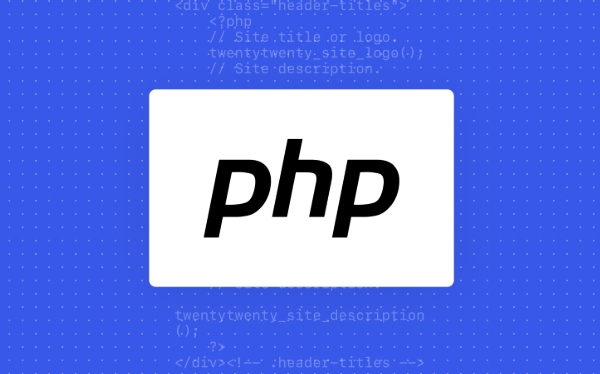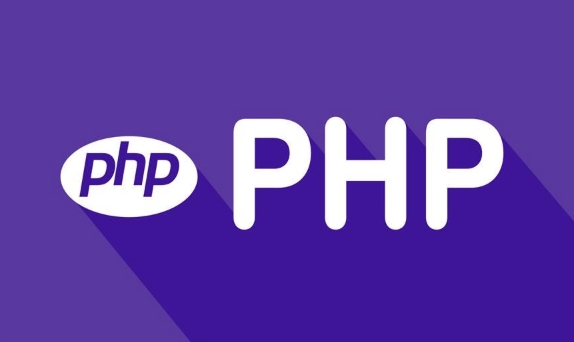which php framework is best for large scale applications
Jul 08, 2025 am 01:55 AMFor large-scale PHP applications, Laravel is best for most teams due to its balance of power and developer experience, Symfony excels in enterprise environments requiring flexibility and long-term support, and CodeIgniter 4 offers lightweight simplicity with scalability. Laravel provides robust built-in features like Eloquent ORM, queue systems, and a mature ecosystem, though optimization is key to avoid performance issues. Symfony offers architectural control, configurability, and strong backward compatibility but requires experienced developers. CodeIgniter 4 delivers speed and minimalism with a gentle learning curve but may require more third-party integrations.

When you're building large-scale applications in PHP, choosing the right framework is crucial. It affects maintainability, scalability, and how smoothly your team can work together over time. While there’s no one-size-fits-all answer, Laravel, Symfony, and to some extent CodeIgniter 4, are often considered top choices — each for different reasons.

Laravel – Great Balance of Power and Developer Experience
Laravel has become one of the most popular PHP frameworks, especially among developers who want a modern toolset without reinventing the wheel.

- Built-in features like Eloquent ORM, queue systems, task scheduling, and an expressive query builder make it easier to handle complex business logic.
- Laravel Mix and Vite integrations help with asset management, which matters when front-end complexity grows.
- Its ecosystem includes tools like Horizon (for queues), Telescope (debugging), and Forge/Envoyer (deployment), which support long-term maintenance at scale.
That said, Laravel can become heavy if not optimized properly. Caching strategies, proper use of service containers, and sticking to best practices are essential when scaling with Laravel.
Symfony – Built for Enterprise-Level Applications
If you're working on something that needs extreme flexibility or long-term enterprise support, Symfony might be the better fit.

- Symfony components are used by many other frameworks and CMSs (like Drupal), which shows their maturity and stability.
- It gives you more control over configuration and architecture, making it ideal for highly customized large apps.
- Strong emphasis on backward compatibility helps reduce headaches during long development cycles.
However, Symfony has a steeper learning curve than Laravel. You’ll need experienced developers who understand things like dependency injection, bundles, and event dispatching to get the most out of it.
CodeIgniter 4 – Lightweight but Still Scalable
CodeIgniter isn’t as feature-rich out of the box, but CodeIgniter 4 has made big improvements and remains a solid option if you prefer minimalism.
- It's fast and lightweight, which can be a big plus when performance matters.
- You have more freedom to choose your own libraries and structure, which is great if you don't want to be locked into framework defaults.
- Good documentation and a simple learning curve make it easier to bring new developers up to speed quickly.
The trade-off here is that you’ll likely end up integrating third-party packages or writing more custom code compared to Laravel or Symfony.
Ultimately, the best framework depends on your team’s expertise, project requirements, and long-term goals. Laravel offers the best mix of developer-friendly tools and robust features for most large apps. Symfony shines when you need full architectural control. CodeIgniter 4 works well if you want simplicity without sacrificing scalability.
It’s not overly complicated, but it’s easy to pick the wrong tool if you don’t match the framework to your actual needs.
The above is the detailed content of which php framework is best for large scale applications. For more information, please follow other related articles on the PHP Chinese website!

Hot AI Tools

Undress AI Tool
Undress images for free

Undresser.AI Undress
AI-powered app for creating realistic nude photos

AI Clothes Remover
Online AI tool for removing clothes from photos.

Clothoff.io
AI clothes remover

Video Face Swap
Swap faces in any video effortlessly with our completely free AI face swap tool!

Hot Article

Hot Tools

Notepad++7.3.1
Easy-to-use and free code editor

SublimeText3 Chinese version
Chinese version, very easy to use

Zend Studio 13.0.1
Powerful PHP integrated development environment

Dreamweaver CS6
Visual web development tools

SublimeText3 Mac version
God-level code editing software (SublimeText3)
 PHP Variable Scope Explained
Jul 17, 2025 am 04:16 AM
PHP Variable Scope Explained
Jul 17, 2025 am 04:16 AM
Common problems and solutions for PHP variable scope include: 1. The global variable cannot be accessed within the function, and it needs to be passed in using the global keyword or parameter; 2. The static variable is declared with static, and it is only initialized once and the value is maintained between multiple calls; 3. Hyperglobal variables such as $_GET and $_POST can be used directly in any scope, but you need to pay attention to safe filtering; 4. Anonymous functions need to introduce parent scope variables through the use keyword, and when modifying external variables, you need to pass a reference. Mastering these rules can help avoid errors and improve code stability.
 How to handle File Uploads securely in PHP?
Jul 08, 2025 am 02:37 AM
How to handle File Uploads securely in PHP?
Jul 08, 2025 am 02:37 AM
To safely handle PHP file uploads, you need to verify the source and type, control the file name and path, set server restrictions, and process media files twice. 1. Verify the upload source to prevent CSRF through token and detect the real MIME type through finfo_file using whitelist control; 2. Rename the file to a random string and determine the extension to store it in a non-Web directory according to the detection type; 3. PHP configuration limits the upload size and temporary directory Nginx/Apache prohibits access to the upload directory; 4. The GD library resaves the pictures to clear potential malicious data.
 Commenting Out Code in PHP
Jul 18, 2025 am 04:57 AM
Commenting Out Code in PHP
Jul 18, 2025 am 04:57 AM
There are three common methods for PHP comment code: 1. Use // or # to block one line of code, and it is recommended to use //; 2. Use /.../ to wrap code blocks with multiple lines, which cannot be nested but can be crossed; 3. Combination skills comments such as using /if(){}/ to control logic blocks, or to improve efficiency with editor shortcut keys, you should pay attention to closing symbols and avoid nesting when using them.
 How Do Generators Work in PHP?
Jul 11, 2025 am 03:12 AM
How Do Generators Work in PHP?
Jul 11, 2025 am 03:12 AM
AgeneratorinPHPisamemory-efficientwaytoiterateoverlargedatasetsbyyieldingvaluesoneatatimeinsteadofreturningthemallatonce.1.Generatorsusetheyieldkeywordtoproducevaluesondemand,reducingmemoryusage.2.Theyareusefulforhandlingbigloops,readinglargefiles,or
 Tips for Writing PHP Comments
Jul 18, 2025 am 04:51 AM
Tips for Writing PHP Comments
Jul 18, 2025 am 04:51 AM
The key to writing PHP comments is to clarify the purpose and specifications. Comments should explain "why" rather than "what was done", avoiding redundancy or too simplicity. 1. Use a unified format, such as docblock (/*/) for class and method descriptions to improve readability and tool compatibility; 2. Emphasize the reasons behind the logic, such as why JS jumps need to be output manually; 3. Add an overview description before complex code, describe the process in steps, and help understand the overall idea; 4. Use TODO and FIXME rationally to mark to-do items and problems to facilitate subsequent tracking and collaboration. Good annotations can reduce communication costs and improve code maintenance efficiency.
 Quick PHP Installation Tutorial
Jul 18, 2025 am 04:52 AM
Quick PHP Installation Tutorial
Jul 18, 2025 am 04:52 AM
ToinstallPHPquickly,useXAMPPonWindowsorHomebrewonmacOS.1.OnWindows,downloadandinstallXAMPP,selectcomponents,startApache,andplacefilesinhtdocs.2.Alternatively,manuallyinstallPHPfromphp.netandsetupaserverlikeApache.3.OnmacOS,installHomebrew,thenrun'bre
 How to access a character in a string by index in PHP
Jul 12, 2025 am 03:15 AM
How to access a character in a string by index in PHP
Jul 12, 2025 am 03:15 AM
In PHP, you can use square brackets or curly braces to obtain string specific index characters, but square brackets are recommended; the index starts from 0, and the access outside the range returns a null value and cannot be assigned a value; mb_substr is required to handle multi-byte characters. For example: $str="hello";echo$str[0]; output h; and Chinese characters such as mb_substr($str,1,1) need to obtain the correct result; in actual applications, the length of the string should be checked before looping, dynamic strings need to be verified for validity, and multilingual projects recommend using multi-byte security functions uniformly.
 Learning PHP: A Beginner's Guide
Jul 18, 2025 am 04:54 AM
Learning PHP: A Beginner's Guide
Jul 18, 2025 am 04:54 AM
TolearnPHPeffectively,startbysettingupalocalserverenvironmentusingtoolslikeXAMPPandacodeeditorlikeVSCode.1)InstallXAMPPforApache,MySQL,andPHP.2)Useacodeeditorforsyntaxsupport.3)TestyoursetupwithasimplePHPfile.Next,learnPHPbasicsincludingvariables,ech






